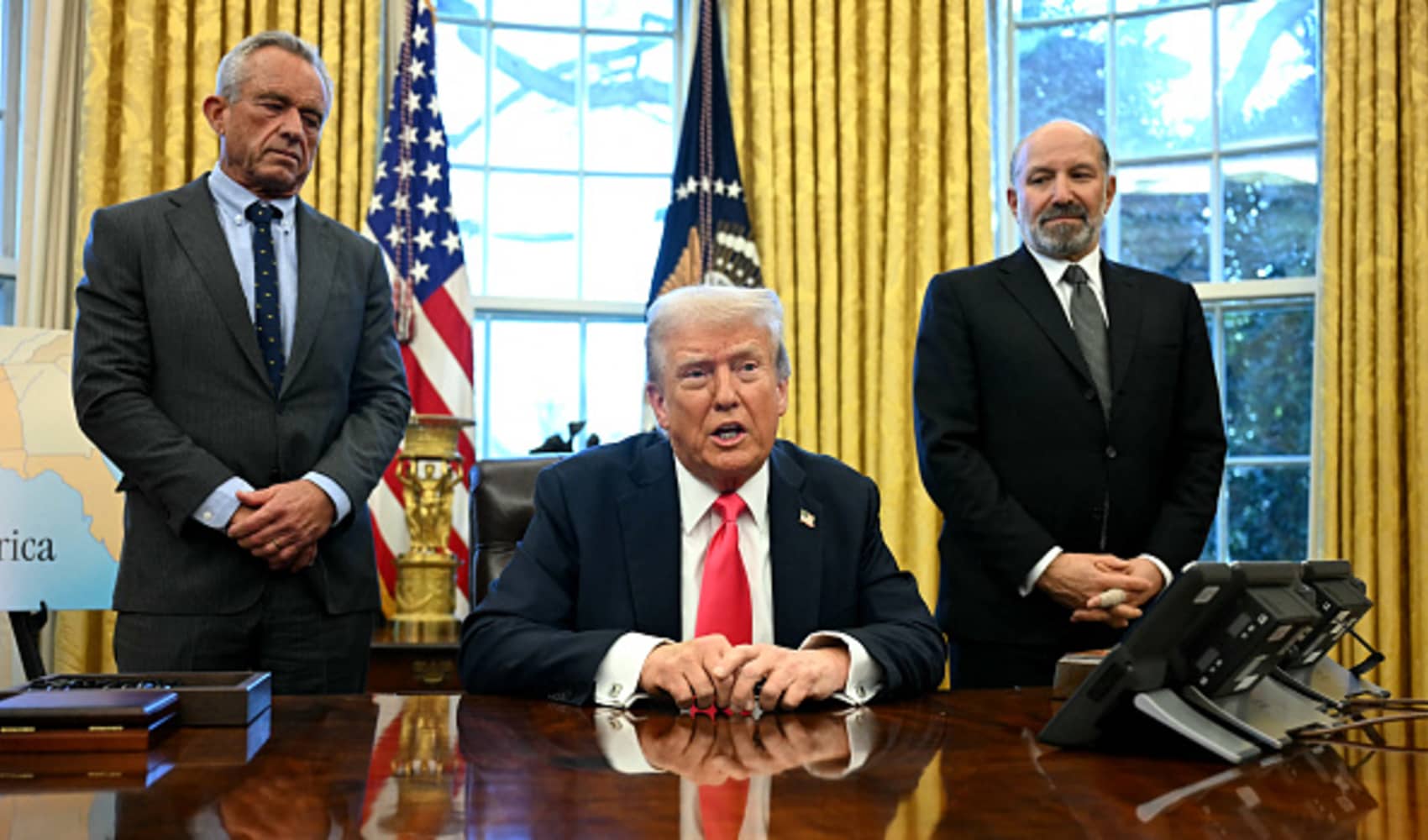![[CNBC] Trump announces 25% tariffs on imported cars and parts—here’s one way to help offset the costs](https://media.nbcboston.com/2025/03/108122427-1743105330465-gettyimages-686735699-zef11526.jpeg?quality=85&strip=all&resize=320%2C180)
[CNBC] Trump announces 25% tariffs on imported cars and parts—here’s one way to help offset the costs
If you're planning to buy a new car, be prepared to pay more.
On Wednesday, President Donald Trump announced a new 25% tariff on imported cars and key auto parts, effective April 3.
WATCH ANYTIME FOR FREE
Stream NBC10 Boston news for free, 24/7, wherever you are. |
The new policy builds on earlier tariffs targeting Canadian, Mexican and Chinese goods by introducing a specific measure aimed at the auto industry. While additional tariffs are expected to be announced on April 2, the latest auto-specific tariffs will apply to nearly all foreign-made cars and components, regardless of origin.
Details are still unclear, but under the new policy, the tariff is expected to apply only to the non-U.S. content of imported vehicles — but without documentation proving U.S. content, the full value of the vehicle may be taxed, according to a White House fact sheet.
Get updates on what's happening in Boston to your inbox. Sign up for our News Headlines newsletter.
About 47% of all vehicles sold in the U.S. are imported, according to Edmunds. Even many American-made models rely on foreign parts, so the impact on prices is expected to be widespread. It's also likely that used car prices will rise, as they tend to follow the cost of new cars.
The average new vehicle transaction price is around $50,000 and tariffs could add thousands to the cost, says Ivan Drury, director of Insights at Edmunds. While the exact amounts aren't yet clear, prices rising "well past $10,000 in some instances would not be out of the realm of possibility," he says.
How to save money buying a new vehicle
Money Report
You may not have control over trade policy, but you do have some influence over how much you pay for a new or used car — especially when it comes to financing.
Improving your credit score could save you thousands of dollars on an auto loan, according to Experian. Here's a look at the average APR for new car loans by FICO score, per the credit bureau:
- 781 to 850: 4.77% APR
- 661 to 780: 6.40% APR
- 601 to 660: 9.59% APR
- 501 to 600: 13.08% APR
- 300 to 500: 15.75% APR
On a $50,000 car loan over five years, a borrower with excellent credit would pay about $938 per month. With poor credit, that same loan could cost around $1,209 per month — a difference of $16,258 over the life of the loan, or about $3,252 per year.
Improving your credit score takes time, but a few key habits can help. Paying bills on time is essential, since payment history makes up 35% of your score, according to FICO.
Keeping credit card balances low — ideally below 30% of your total limit — makes a difference. "Nothing good comes out of running up large balances on credit cards," John Ulzheimer, a credit expert with over 20 years experience, previously told CNBC Make It.
And limiting new loan or credit card applications in the months before financing a car can help avoid unnecessary dents to your score, since hard inquiries can temporarily knock a few points off of your score.
Even a small increase in your credit score could qualify you for a better loan rate and reduce your monthly payment — a useful edge as car prices move higher.
Want to earn some extra money on the side? Take CNBC's new online course How to Start a Side Hustle to learn tips to get started and strategies for success from top side hustle experts. Sign up today and use coupon code EARLYBIRD for an introductory discount of 30% off $97 (+taxes and fees) through April 1, 2025.
Plus, sign up for CNBC Make It's newsletter to get tips and tricks for success at work, with money and in life.






